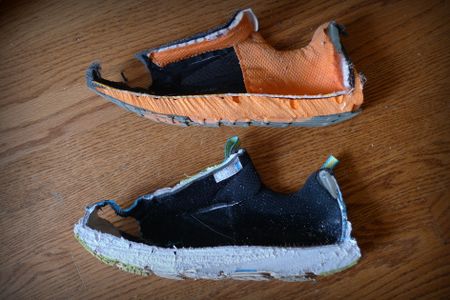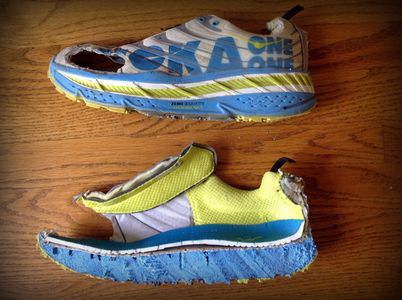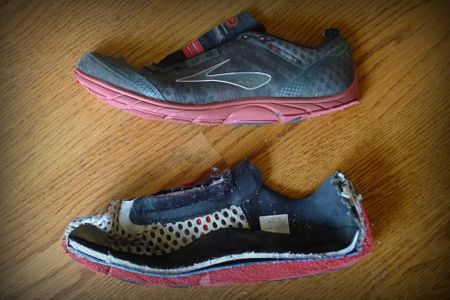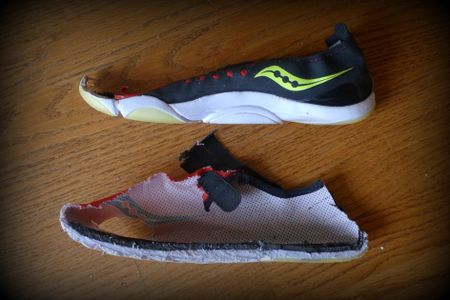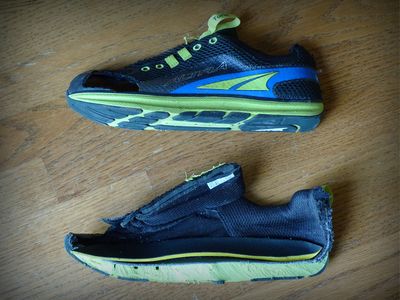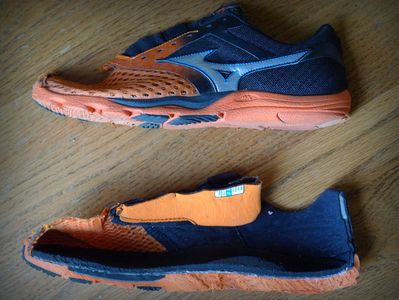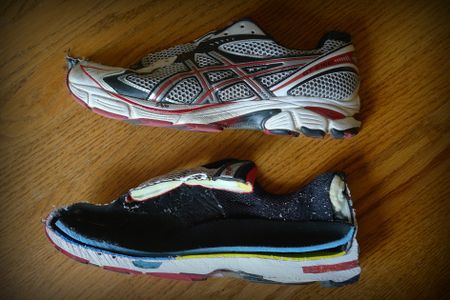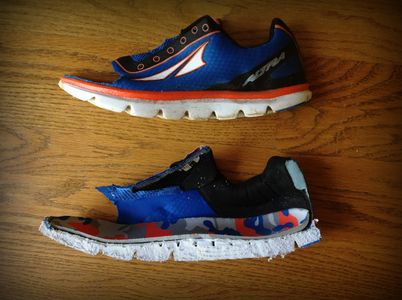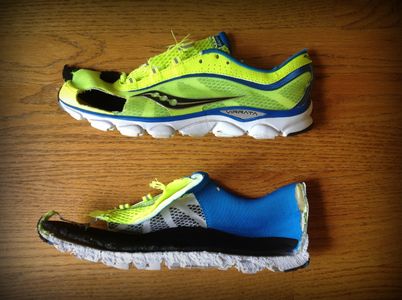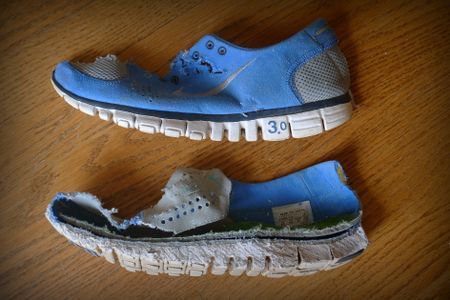Shoe Dissection
From Fellrnr.com, Running tips
Revision as of 17:04, 21 September 2014 by User:Fellrnr (User talk:Fellrnr | contribs)
I've cut many of my shoes in half to reveal their construction. The most obvious feature this reveals is the thickness and shape of the midsole foam. Notice that even shoes like the Altra "zero drop" do not have a flat midsole per se, but rather the midsole undulates with varying thickness along its length. You can also see the padding that is included in the heel and along the tongue. Note that many of these shoes have had the toe box cut open to improve comfort and reduces the risk of blisters.
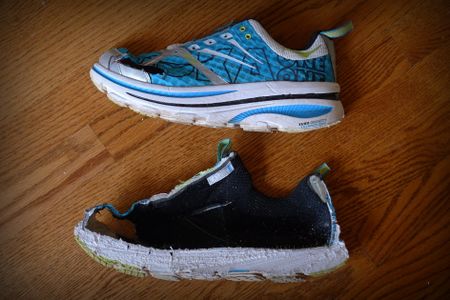 The Hoka Bondi. The midsole is thick, but not as thick as it appears from the outside. Notice the rapid tapering of the midsole ahead of the ball of the foot. |
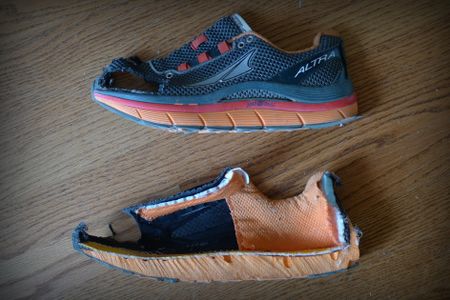 The Altra Olympus. This has a similar thickness to the Hoka, but notice the more gradual tapering of the midsole. |
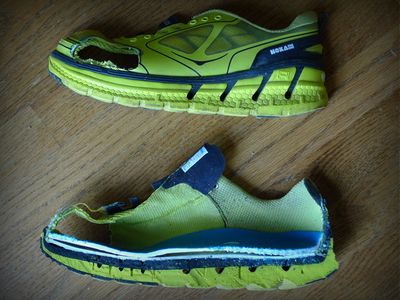 Hoka Conquest. Here you can see the holes in the rear of the midsole, presumably to soften the rather firm foam that is used. | |
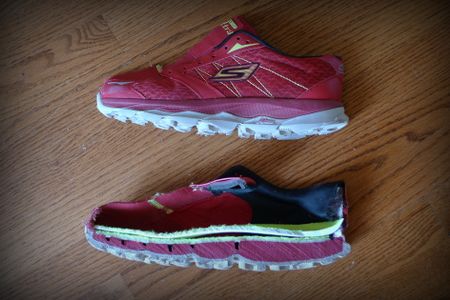 Skechers GOrun Ultra. See the full review for details of this somewhat complex shoe. | |
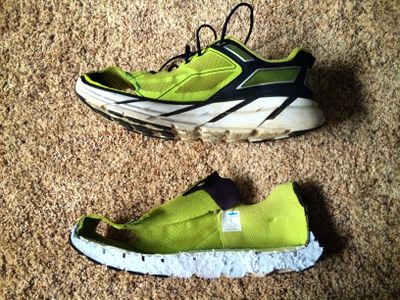 The Hoka Clifton. |
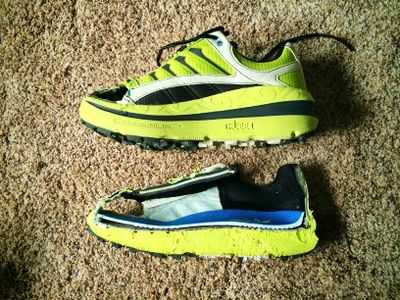 The Hoka Mafate. |
